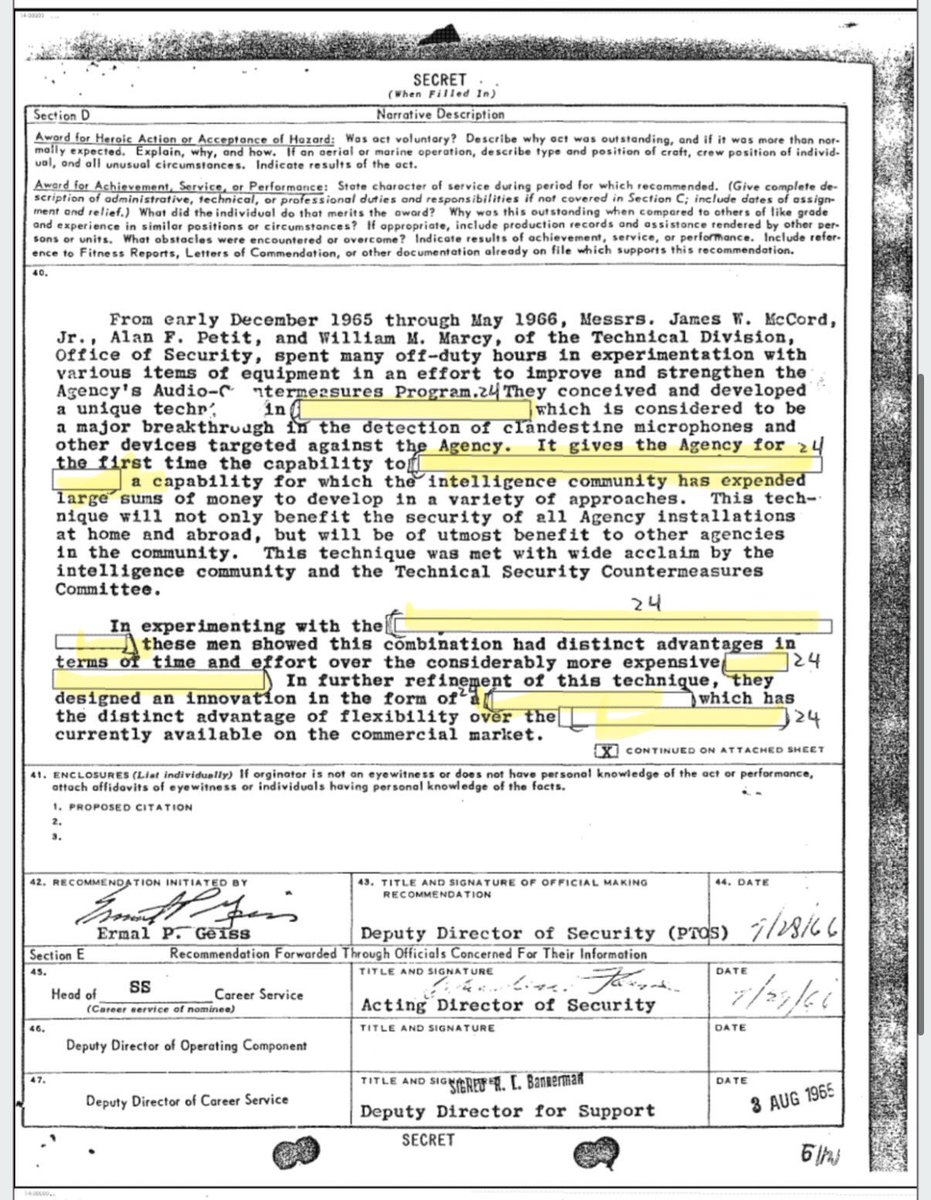🧵
I spent much of last night digging through the #JFKfiles for @ABC. Here’s my take:
Most of what the government released last night is not new -- in fact, much of what has attracted attention on social media has long been in the public domain, except for minor redactions, such as the blacking out of personally-identifiable information of CIA sources or employees (names and addresses) which have now been disclosed.
But the newly-declassified versions of these documents also shed light on granular details of mid-20th century espionage that the CIA had fiercely fought to keep secret. President Biden and President Trump had accepted those arguments, until now.
I spent much of last night digging through the #JFKfiles for @ABC. Here’s my take:
Most of what the government released last night is not new -- in fact, much of what has attracted attention on social media has long been in the public domain, except for minor redactions, such as the blacking out of personally-identifiable information of CIA sources or employees (names and addresses) which have now been disclosed.
But the newly-declassified versions of these documents also shed light on granular details of mid-20th century espionage that the CIA had fiercely fought to keep secret. President Biden and President Trump had accepted those arguments, until now.
The full text of the 1961 Schlesinger memo, long sought by JFK researchers, show how a trusted Kennedy aide urged a reorganization of the CIA in the months after the failed Bay of Pigs Invasion.
More than a full page had been blacked out for more than 60 years. Why?
We now know Schlesinger argued that the CIA’s reliance on “controlled American sources” had been encroaching upon the traditional functions of the State Department, and that the CIA may have been seeking to infiltrate the politics of America’s allies, particularly France.
More than a full page had been blacked out for more than 60 years. Why?
We now know Schlesinger argued that the CIA’s reliance on “controlled American sources” had been encroaching upon the traditional functions of the State Department, and that the CIA may have been seeking to infiltrate the politics of America’s allies, particularly France.
“CIA today has nearly as many people under official cover overseas as State,” Schlesinger wrote, adding that in certain countries, CIA’s presence “outnumbers regular State Department personnel.”
The previously-classified portion of the memo cites the specific number of CIA personnel that had been stationed at the US embassy in Paris, where “CIA has even sought to monopolize contact with certain French political personalities, among them the President of the National Assembly.”
The previously-classified portion of the memo cites the specific number of CIA personnel that had been stationed at the US embassy in Paris, where “CIA has even sought to monopolize contact with certain French political personalities, among them the President of the National Assembly.”
It’s become well-known among JFK researchers over the years that the CIA was surveilling Lee Harvey Oswald in the years prior to the assassination, a fact the agency kept from the Warren Commission.
The docs dropped last night add more specifics about the CIA’s operations, namely in Mexico City, where Oswald met with Cuban and Soviet officials in Sept 1963.
The docs dropped last night add more specifics about the CIA’s operations, namely in Mexico City, where Oswald met with Cuban and Soviet officials in Sept 1963.
These docs reveal how the CIA tapped phones of the Cuban and Soviet diplomatic facilities, information that had been classified until now.
The previously-redacted pages spell out specific instructions for CIA operatives on how to wiretap, including the use of certain chemicals to create markings on telephone devices that could only be seen by other spies under UV light.
The previously-redacted pages spell out specific instructions for CIA operatives on how to wiretap, including the use of certain chemicals to create markings on telephone devices that could only be seen by other spies under UV light.
Personally, one of my favorite finds is in an August 1966 internal CIA memo.
It recommends a “certificate of distinction” for a CIA official who led the spy agency’s technical division. Previous releases of the same document contained redactions striking sentences that described how this individual led a team that “conceived and developed” the use of “fluoroscopic scanning” and X-rays, which allowed the CIA to “detect hidden technical listening devices” for the first time.
The official, James McCord, would go on to become head of security for Richard Nixon’s re-election in 1972.
He gained infamy that same year for his role as one of the Watergate burglars, arrested trying to bug the headquarters of the DNC.
It recommends a “certificate of distinction” for a CIA official who led the spy agency’s technical division. Previous releases of the same document contained redactions striking sentences that described how this individual led a team that “conceived and developed” the use of “fluoroscopic scanning” and X-rays, which allowed the CIA to “detect hidden technical listening devices” for the first time.
The official, James McCord, would go on to become head of security for Richard Nixon’s re-election in 1972.
He gained infamy that same year for his role as one of the Watergate burglars, arrested trying to bug the headquarters of the DNC.
Here’s an illustration of that, showing what had been previously released — and what we learned for the first time only last night.
The McCord doc on the left was last released with redactions in 2023.
The one on the right was made public last night.

The McCord doc on the left was last released with redactions in 2023.
The one on the right was made public last night.


• • •
Missing some Tweet in this thread? You can try to
force a refresh




